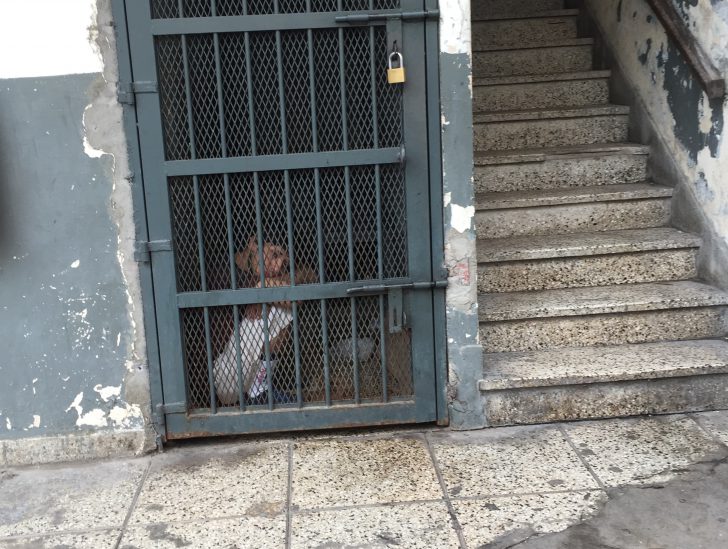At a hearing in which both the national and provincial states participated, the CPM, CELS and the Public Appeals Defender gave a presentation today before the IACHR in Lima, Peru condemning the dire situation in places of confinement in the province of Buenos Aires. A joint report based on records from periodic inspections at prisons and police stations, and on reports from detained persons and their families, revealed the deterioration of the prison system in recent years.
The presentation focused on the issues of overcrowding and overpopulation, the daily regimen and state of facilities, lack of access to health and the body searches affecting detainees’ contact with their families in institutions where corruption is rampant. This set of variables constitutes a framework of rights violations whereby torture is systematically practiced and there is no effective judicial protection.
Today in the province of Buenos Aires, there are around 40,000 people deprived of their liberty; the level of overpopulation reaches 100% if detainees in police jails are taken into account. In the 432 police units, there are 3010 detainees imprisoned, of whom only 1039 have cots. At the same time, more the 250 of these establishments—around 70% of the total—have some type of disqualification by court order or ministerial decision. Nevertheless, 1798 persons are incarcerated in these places.
The dire situation in police stations correlates with the scenario in the 62 prisons and transitory detention facilities, where the incarceration rate has reached historic levels (234 per 100 thousand inhabitants). The overpopulation and crowding are compounded by other grave human rights violations. Lack of access to health, the structural conditions that lead to hunger, cold, isolation and insufficient nutrition are all habitual complaints by persons deprived of liberty.
These are the conditions that have led to the collapse of the prison system in the province, a situation that is not new but has grown consistently worse because criminal policy has not been reverted. The result of all of this is a high number of deaths, averaging 130 per year in the prison system. There have also been at least 43 deaths in police jails in the past five years.
This situation reported to the IACHR includes the events of last March 2 in the city of Pergamino, where seven young people died of asphyxiation and burns at Police Station No. 1. Court evidence indicates that police agents did nothing to prevent the fire or to save the detainees once the fire broke out. The seven young men were under state custody and, therefore, the state is responsible for their deaths. The Pergamino Massacre is the cruelest portrait of the collapse of the prison system in the province of Buenos Aires; it is also a reflection of the state’s absolute indifference to the numerous and extensive reports on the situation inside prisons and police jails that precipitated this event.
For all of these reasons, the three organizations submitted a request to the IACHR for the provincial state to take measures to revert the situation and called on the state to urgently implement a plan to put a stop to the use of police jails as places of prolonged detention, and resolve current levels of crowding; to promote effective policies of torture prevention; to expressly prohibit housing prisoners in police jails and avoid setbacks. They also requested that the state commit to sustaining joint work under IACHR supervision. The provincial state acknowledged the severity of the problem but did not offer concrete solutions for crowding or for prohibiting incarceration in police jails.
The members of the IACHR shared the concerns raised by these organizations. After seeing the images compiled by the petitioners from an inspection of the prisons and police jails in the province in June, Commissioner Margarette May Macauley underscored that the conditions of detention are inhuman and that the solution must include the passage of laws that do not cause further crowding. Commissioner James Cavallaro said that prolonged detention in police jails does not comply with international standards and there must be a concrete plan to cease housing prisoners in these police units and to lower the incarceration rate. Cavallaro, Special Rapporteur on the Rights of Persons Deprived of Liberty, requested that the state present a concrete plan to achieve this and announced a special follow-up meeting for October.
For over a decade the Comisión Provincial por la Memoria (CPM), Center for Legal and Social Studies (CELS) and the Public Appeals Defender have been denouncing at both the local and international levels this situation of severe risk for the life and physical integrity of detainees. Despite warnings from the IACHR as well as decisions issued by the Supreme Court, the Argentine state has not implemented adequate and effective measures to revert this situation.
Photo: CELS, Police Station No. 1, Moreno, Province of Buenos Aires

